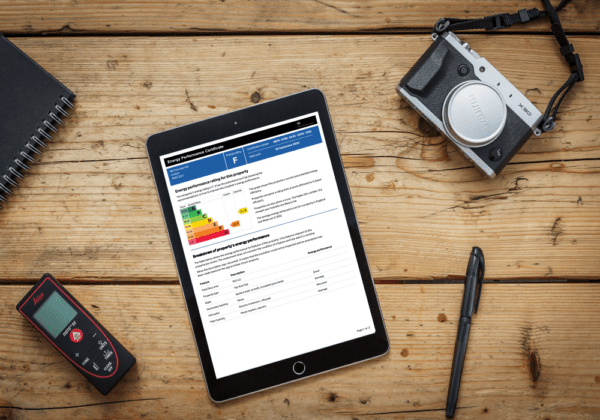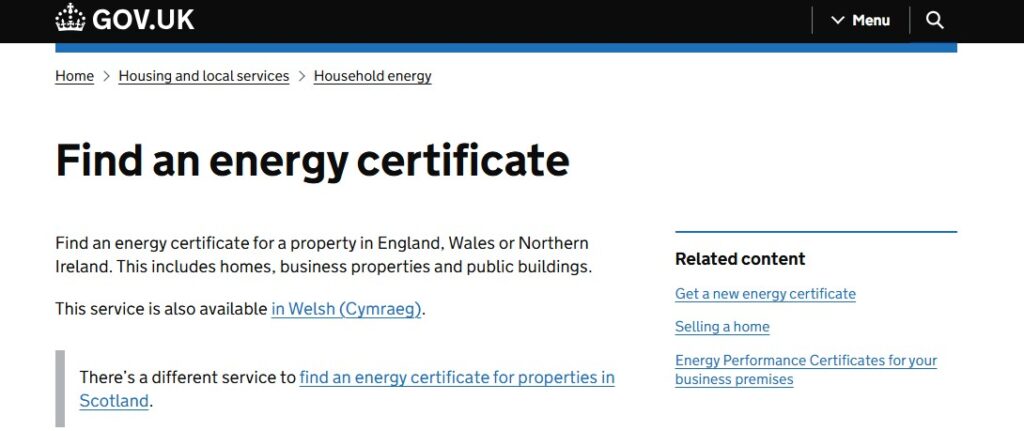The Role of the EPC Register in Conveyancing
In the world of property transactions, the Electronic Performance Certificate (EPC) Register is a pivotal element, influencing the landscape of conveyancing.
As property buyers and sellers navigate the complexities of the real estate market, understanding the significance of the EPC Register becomes essential.
In this blog, we delve into the role that the EPC Register plays in the conveyancing process, shedding light on its importance and the benefits it brings to property transactions.
EPC Register Overview:
- Essential Compliance Tool: The EPC register stands as a cornerstone in property transactions, ensuring strict adherence to energy efficiency standards.
- Crucial Assessment for Property Valuation: Energy performance certificates (EPCs) are pivotal in evaluating a property’s energy efficiency, directly impacting its overall value.
- Effortless Access via EPC Register Navigation: Navigating the EPC register is a user-friendly process, allowing access to property energy certificates through convenient postcode or address searches.
- Reliable Information Hub for Conveyancing: The accuracy of EPCs serves as a reliable source of information for both buyers and sellers.
- Strategic Impact on Property Value and Energy Costs: Proactively enhancing a property’s energy performance prior to the conveyancing process can result in increased property value and reduced long-term energy costs.

What is an EPC?
An energy performance certificate is a comprehensive document that scrutinises the energy efficiency of a building, graded on a scale from A to G, where A signifies optimal energy efficiency and G denotes the least.
The EPC contains a property’s energy consumption, carbon emissions, and recommendations for improving energy performance, EPCs are crafted by accredited energy assessors. These assessors evaluate factors including; insulation, heating systems, and lighting.
Why an EPC is important
The EPC register is a vital tool in property transactions, providing valuable information about a building’s energy efficiency.
In the United Kingdom, the law mandates Energy Performance Certificates (EPCs) for the majority of residential and commercial buildings undergoing sale, rental, or construction. These certificates serve as indicators of a building’s energy efficiency, offering potential buyers and tenants valuable insights into energy consumption and associated costs.
Ensuring compliance with EPC legal requirements is crucial in the conveyancing process, guaranteeing a seamless transaction. Failure to furnish a valid EPC can result in legal complications and delays.
Beyond mere legal obligations, the significance of energy performance certificates extends to influencing property values and efficiency. With an increasing awareness of energy consumption and costs, buyers and tenants are placing a premium on energy-efficient properties.
Facilitating easy access to these crucial certificates, the EPC register serves as a user-friendly platform, allowing users to effortlessly search for and retrieve EPCs. This centralised database ensures that EPC information is readily available, enabling informed decision-making during property transactions.
The EPC register provides a comprehensive overview of a property’s energy efficiency, empowering buyers and tenants to make well-informed choices. By understanding a building’s energy performance, individuals can assess its long-term costs and potential savings.
More than a legal requirement, the EPC register emerges as a valuable tool promoting energy-efficient practices within the real estate market. It encourages buyers to consider energy performance in their property investment decisions and motivates property owners to enhance energy efficiency.
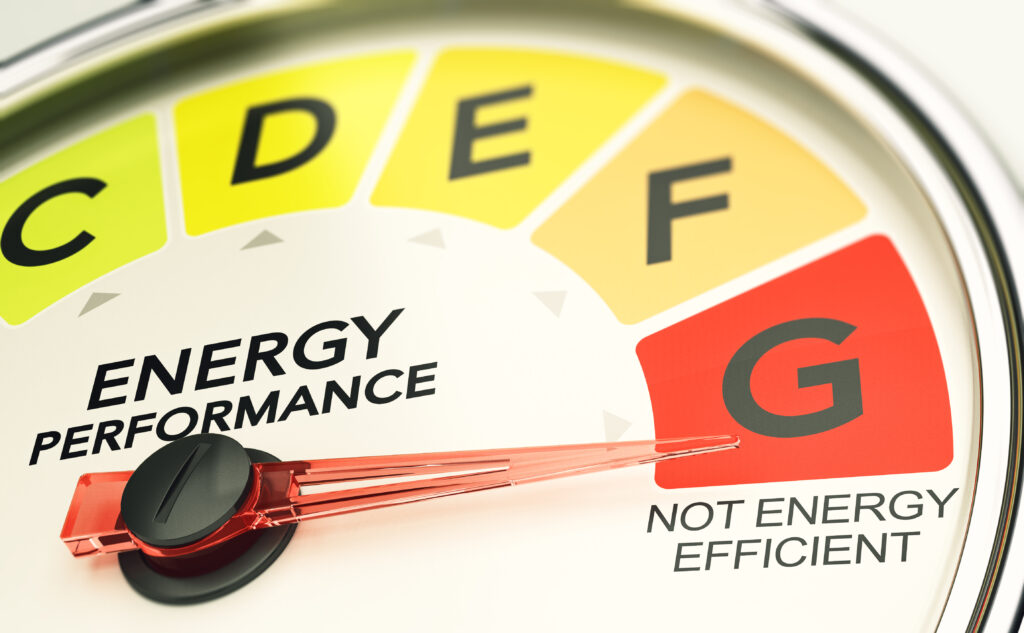
Can you sell a house without an EPC?
In the United Kingdom, possessing a valid EPC is a legal requirement during the sale or rental of a property.
This certificate must be readily available to potential buyers or tenants as an integral facet of the marketing process.
The consequences of failing to hold a valid EPC are:
- financial penalties up to £200
- potential delays in the conveyancing process.
Complying with these laws is a responsibility for both buyers and sellers.
Can you sell a house with a bad EPC rating?
Yes you can sell a house with a bad EPC rating. However, the sway of EPC ratings on property values and efficiency is undeniable.
Buildings with higher EPC ratings, often draw heightened interest from both buyers and tenants. This is drawn from the promise of lower energy costs and a reduced carbon footprint, alongside the growing consciousness of environmental impact.
Conversely, properties carrying lower EPC ratings may encounter reduced demand and may see reduced selling prices.
This can directly impact property values as highlighted in the table below:
| EPC Rating | Average Property Value Increase |
|---|---|
| A | Up to 14% |
| B | Up to 10% |
| C | Up to 7% |
| D | Up to 4% |
| E | No significant increase |
| F or G | Potential decrease |
How to find your EPC rating
- Click the “Search” button.
- Visit the official website of the EPC register at https://www.gov.uk/find-energy-certificate.
- On the homepage, locate the search bar.
- Enter the postcode or address of the property you intend to explore.
Understanding Your Property’s Energy Rating from the EPC
Once you have your property’s energy certificate from the EPC register it’s worth considering the following key points:
- The energy rating is presented on a scale from A to G, with A signifying optimal energy efficiency and G indicating lower efficiency.
- The energy rating encompasses factors such as insulation, heating systems, and renewable energy sources.
- Grasping your property’s energy rating empowers you to identify areas for enhancement and take proactive steps to elevate its energy efficiency.
Armed with this knowledge, you can make well-informed decisions regarding energy efficiency and compliance in property transactions. energy certificates, and gain profound insights into your property’s energy rating. Armed with this knowledge, you can make well-informed decisions regarding energy efficiency and compliance in property transactions.
How to get a new EPC rating
If your EPC certificate has expired or does not show up in a postcode search you will need to get a new EPC certificate.
This comprehensive guide outlines the step-by-step process involved in obtaining a new EPC for conveyancing purposes.
1. Engage a Qualified Energy Assessor:
- Start the process by identifying a qualified energy assessor with accreditation and expertise in assessing energy efficiency.
2. Schedule the Assessment:
- Once a qualified energy assessor is selected, schedule an assessment of the property.
- During the assessment, the assessor will collect relevant data, examining elements such as insulation, heating systems, and lighting to evaluate the property’s energy performance.
3. Evaluation and Certification:
- Post-assessment, the energy assessor analyses the gathered data to calculate the property’s energy rating.
- Subsequently, an updated EPC is issued for the property, providing a renewed snapshot of its energy efficiency.
It’s crucial to note that EPCs have a specific expiration date, typically valid for 10 years. Ensuring awareness of this date is essential for compliance with conveyancing requirements and maintaining transparency in property transactions.ancing services have revolutionised property transactions, offering unparalleled convenience, efficiency, and cost-effectiveness. The integration of these services with the EPC register further elevates the conveyancing experience, fostering a seamless process for all stakeholders.
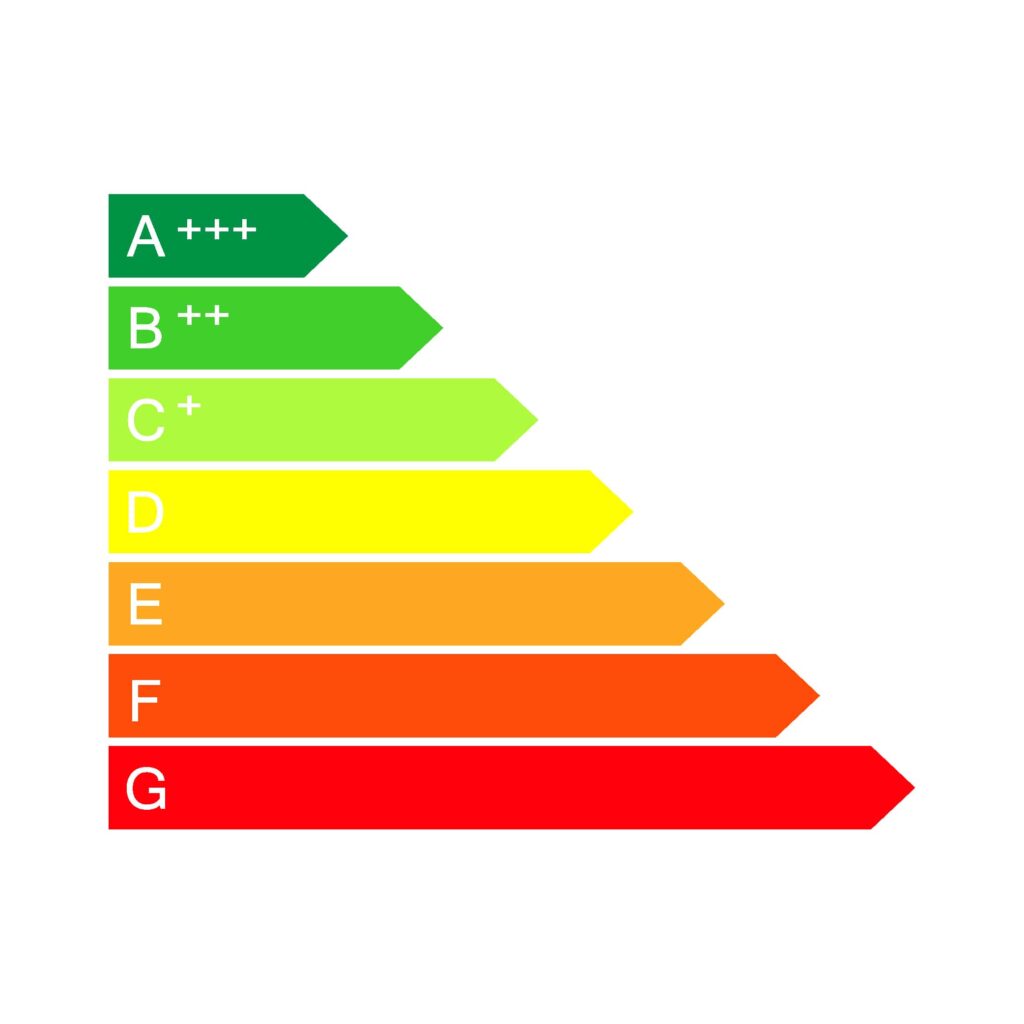
Online Conveyancing Integration with the EPC Register
In today’s digital landscape, online conveyancing services offer unparalleled convenience, efficiency, and cost-effectiveness. The integration of these services with the EPC register improves the conveyancing experience, providing a seamless process for buyers and sellers.
Benefits of Online Conveyancing Services:
Cost-effectiveness: Competitive pricing compared to traditional methods often results in significant cost savings, complementing other advantages.property’s energy performance.
Convenience: Manage the entire process from the comfort of your home without the need for extensive visits to solicitors’ offices or voluminous paperwork.
Efficiency: Quick access to necessary documents and streamlined communication between parties eliminate delays, ensuring an efficient conveyancing process.

How the EPC register benefits the conveyancing process
Conveyancers gain access to crucial energy efficiency information, facilitating informed decision-making and compliance with legal requirements.
The integration of the EPC register with online conveyancing services enhances efficiency and effectiveness.
How Online Conveyancers Use the EPC Checker:
- Online conveyancers leverage the EPC checker to ensure compliance and facilitate smooth transactions.
- The tool verifies the validity and authenticity of EPCs, confirming that all necessary certificates are in place before proceeding with a property transaction.
- Insights into a property’s energy efficiency rating empower conveyancers to advise clients effectively, influencing negotiations and investment decisions.
In essence, the EPC checker serves as a valuable resource for online conveyancers, streamlining the conveyancing process and providing clients with comprehensive and reliable energy efficiency information.
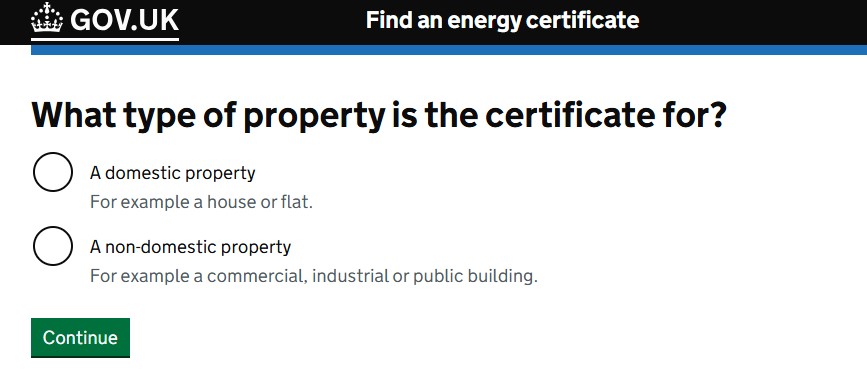
Energy Assessors and EPCs
Energy assessors are pivotal in delivering an unbiased evaluation of a property’s energy efficiency, a critical component in the conveyancing process. Securing the services of a qualified energy assessor is paramount to guarantee a dependable and accurate assessment of your property’s energy performance.
Finding a Competent Energy Assessor
Emphasis should be placed on accreditation and expertise. Look for energy assessors who hold registration and certification from recognized governing bodies or accreditation schemes.
These credentials ensure that the assessor adheres to industry standards, possessing the knowledge and skills for an accurate property energy performance evaluation. Additionally, look at referrals or recommendations from trusted sources, such as friends, family, or other property professionals.
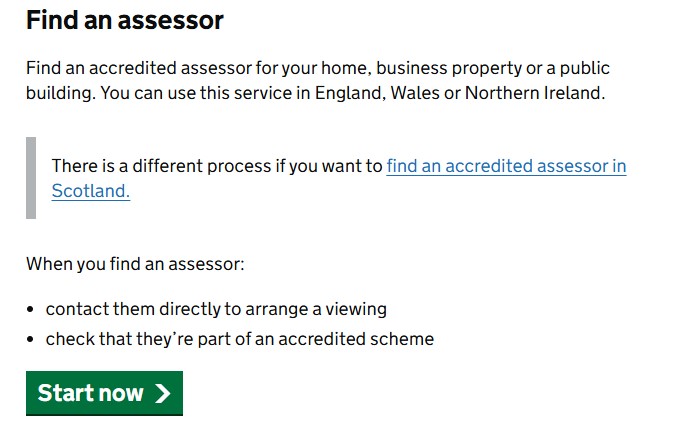
Energy Assessors and Property Assessment
Energy assessors evaluate properties and furnishings through a property examination.
Factors such as insulation, heating systems, renewable energy sources, and overall energy consumption are considered.
They provide a comprehensive and impartial evaluation, offering a true reflection of a property’s energy efficiency.
How much does an EPC cost?
An EPC typically costs between £35-£120 depending on property size and location. EPC’s are typically charged to the property owner. These costs typically include the fee for the energy assessor’s assessment and the registration fee for the EPC itself.
Additional costs may be incurred if re-assessment is required or if the property undergoes significant renovations that affect its energy efficiency. By understanding these costs upfront, buyers can better manage their finances during the conveyancing process.

Lowering Energy Costs with improved EPC Ratings
As mentioned previously, when you receive your EPC rating, you will also receive a list of recommended actions for improving your EPC score. Although this can incur additional costs, often in the longer term actioning these improvements can positively impact house value and your monthly energy bills.
Why Choose GD Legal?
Embarking on your conveyancing journey and require an EPC? remember that knowledge empowers. Armed with the insights and guidance from GD Property Solicitors, navigate property transactions with confidence and efficiency.
GD Property Solicitors is dedicated to providing excellent conveyancing services and committed to ensuring that your property transactions unfold seamlessly and in compliance with all necessary regulations. Contact us today on 161 710 1786, to guide you through the process, or get a quote today here
